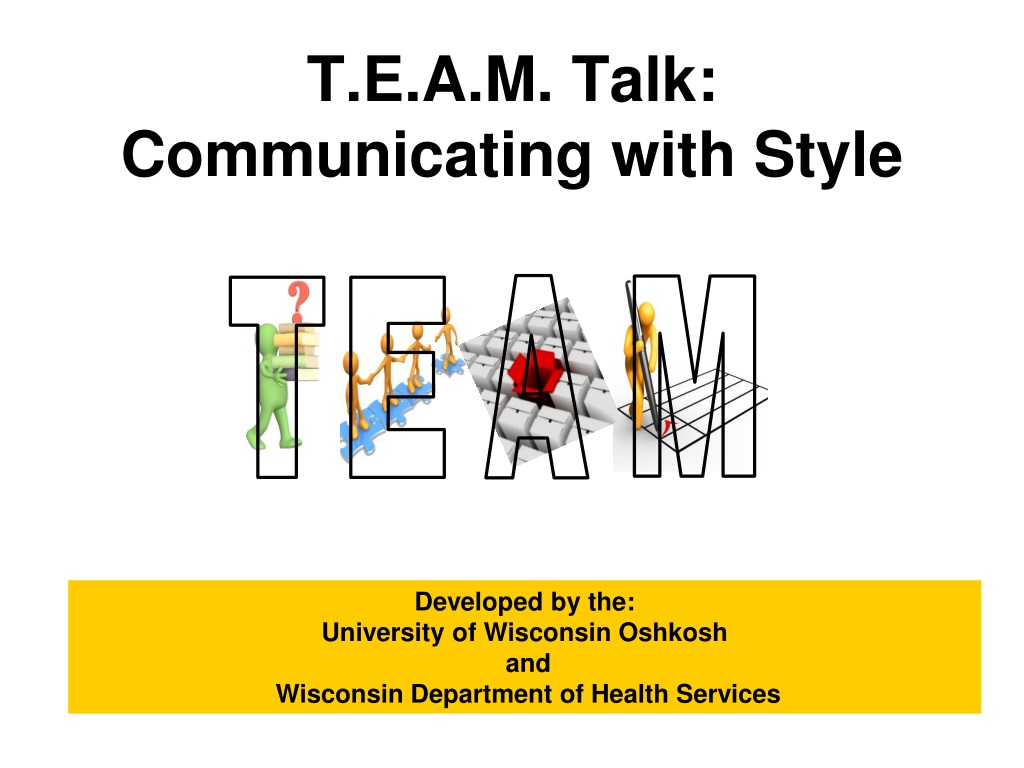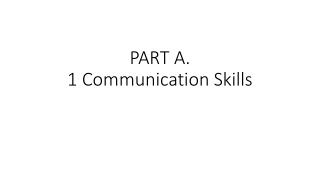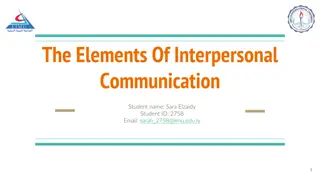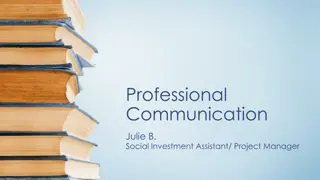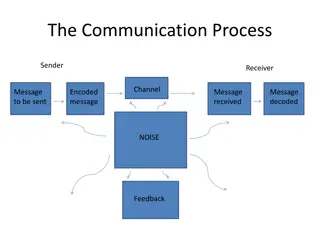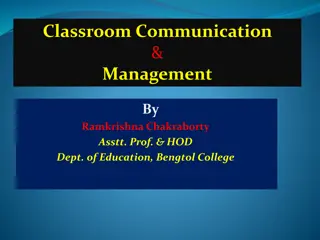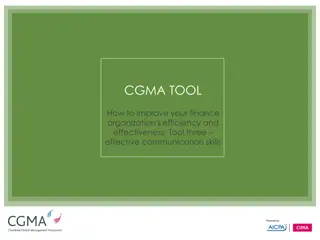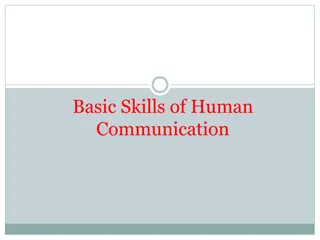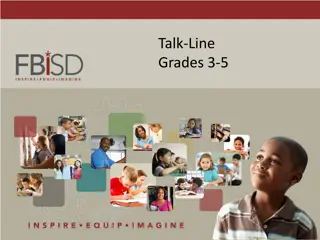Enhancing Communication Skills with T.E.A.M. Talk
Explore T.E.A.M. Talk, a communication style program developed by the University of Wisconsin Oshkosh, aimed at improving verbal and nonverbal communication skills, understanding different communication styles, and adapting strategies for successful team collaboration. Engage in activities to analyze communication strengths and limitations, address conflicts, and enhance interactions with clients and family members for effective communication outcomes.
Download Presentation

Please find below an Image/Link to download the presentation.
The content on the website is provided AS IS for your information and personal use only. It may not be sold, licensed, or shared on other websites without obtaining consent from the author. Download presentation by click this link. If you encounter any issues during the download, it is possible that the publisher has removed the file from their server.
E N D
Presentation Transcript
T.E.A.M. Talk: Communicating with Style A M T E Developed by the: University of Wisconsin Oshkosh and Wisconsin Department of Health Services
Learning Points Identify your personal communication style and the style of others Improve communication skills, both verbal and nonverbal Communicate successfully with other styles Understand communication challenges with clients and their family members Adapt communication skills for a more successful team
Identifying Communication Styles Who s On Your Team? Identifying Communication Styles Verbal vs. Nonverbal Communication
T.E.A.M. Talk: Communicating with Style It s not what we say but how we say it! Sort the cards by the one that is most like you to the one that is least like you Don t think about it too much--just go with your first impressions T E A M
Activity: Analyze the Styles What strengths does your style bring to the team? How could your style limit the team?
More About T.E.A.M. Talk Avoid Stereotypes Reduce Conflict with Others Improve Communication with: Other styles Clients Family members of residents
Activity: Examples of Conflicts Review the Example Assigned to Your Table Note Your Responses in the Spaces Provided Why It s Important to Understand Style
Learning Points Review Identify your personal communication style and the style of others Improve communication skills, both verbal and nonverbal Communicate successfully with other styles Understand communication challenges with clients and their family members Adapt communication skills for a more successful team
developed by The Wisconsin Caregiver Project University of Wisconsin Oshkosh Center for Career Development (CCDET) www.uwosh.edu/ccdet/caregiver
